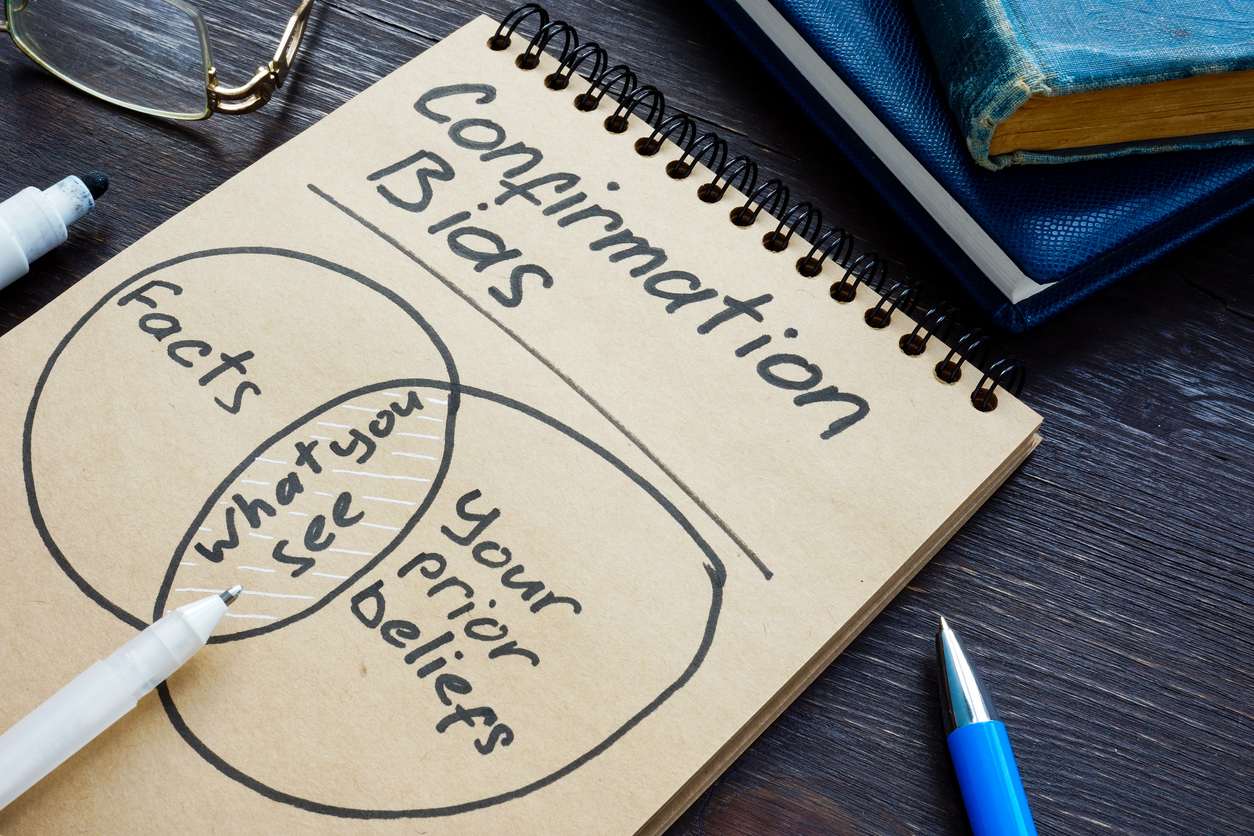Have you ever held a belief (like who should be the next President or whether to vaccinate your kids) and then intentionally went to look for proof that supports your opinion? Maybe your opinion was a bit controversial and you went looking for information you could use when discussing the topic with your friends to prove your point?
This is what we call an intentional Confirmation Bias. You are intentionally choosing to only look for/consume information that confirms your opinion.
But most often, when we are talking about Confirmation Bias we are talking about a subconscious bias.
What is Confirmation Bias?
Confirmation Bias is a process by which our brain subconsciously directs us to notice information that supports our thinking over information that goes against our thinking.
But how does our brain make this choice?
The influence of Confirmation Bias is most prominent in emotionally charged situations. When we are making decisions in our Limbic system (emotional part of the brain) as opposed to our Frontal lobe (or the analytical part of the brain). So, decisions that we are emotionally invested in, for example, believing the person we are about to marry is the “right one” or the house we can afford to buy is “all we’ve ever wanted”, are more prone to this bias.
The limited human capacity to process all the information that is readily available to us makes the brain “pick” which information to focus on and which information to exclude. Naturally, this process of picking is not very neutral, hence the Confirmation Bias.
(I feel like the ego may have a part to play in this, because as humans we do have a tendency to want to be right, but I haven’t explored this yet).
Example
The most recent example I have witnessed of Confirmation Bias was at the local playground. One kid, about 5 years old, was going around cutting into slide queues, pushing kids, etc… the mother was absolutely oblivious. I know for a fact this mother doesn’t condone bullying behaviour, because I have seen her expertly spot other kids’ playground misbehaviours and point them out to their respective parents… but she seemed absolutely unaware that her kid was the biggest offender.
Applying Confirmation bias to this, the information her brain chose to ignore was the information that went against her own image of her son being a little darling.
Another (non-specific) example, but I’m sure we’ve all seen it happen is in slow-burn start-ups, surviving on investors’ money for far too long, rather than on sales. It starts with a founder who has a great business idea, jumps the gun to progress the idea by getting a few early investors on board, leasing an office, buying a website domain (you know; all the crucial stuff)… but then struggles with getting sales. At that point, someone suggests market research, but the founder will likely bias the whole thing to give them the answers they want. After all, they’ve invested too much financially and emotionally in this idea to give up on it.
Overcoming Confirmation Bias
Confirmation Bias is particularly hard to overcome because it mainly shows up in situations where we hold deeply ingrained beliefs, or in situations where emotions are high.
If you want to have a go at tackling the beast by yourself you will have to become ruthless when it comes to challenging your own beliefs. You could try actively looking for evidence to prove your point of view is wrong. This could be via reading articles or listening to podcasts that argue against your belief. Or seeking out and engaging in conversation with people that think differently from you.
But challenging yourself, by yourself, can be hard because Confirmation Bias often acts as a blind spot. So your best bet may be to outsource auditing for the bias to a third party, i.e., assign someone else to play Devil’s Advocate. For example, if you are convinced that you have a great new product launch idea, give permission to your brightest and smartest to pick it apart before you progress with it.
Mirta is a Director of ViAGO Limited, a behavioral science enthusiast, and a mum to three boisterous boys.
